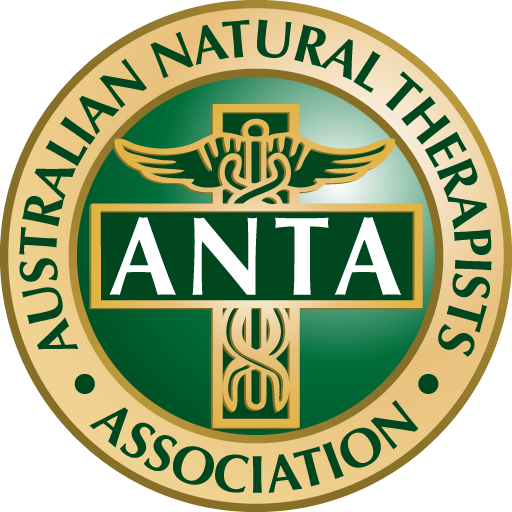Is fasted cardio good for you?
You may have read a previous blog of mine, discussing the benefits of intermittent fasting. You may have found yourself thinking, the ‘fasted state’ does not include any strenuous activity or exertion, because surely you cannot do exercise in a fasted state, right? WRONG. There are great benefits from doing fasted cardio, particularly for fat loss! Keep reading to find out what they are!
What is fasted cardio?
Cardio is an aerobic form of exercise, meaning that your body relies on oxygen to adequately meet its energy demands. These include medium and long distance activities such as running, swimming and cycling. Fasted cardio occurs when you have experienced a period of fasting (normally around 10 hours, overnight) before doing some exercise. It is easiest to do first thing in the morning, before breakfast. Overnight, the body has likely used up most of its glycogen energy stores in the liver and in muscles. Glycogen is stored energy from carbohydrates, and when that is all used up, the body will likely switch to fat for energy as its next point of call (10). At first, and if your body isn’t used to using fat as fuel, it may be very difficult to push past that glycogen-depleted feeling of exhaustion.
If fasted cardio is something you’d like to give a go, it might be worth starting off with caloric-restriction (less food prior to exercise) first, and gradually decrease your consumption until you are able to withstand a fasted cardio workout.
In my experience, there appears to be a “transition” period, where an extreme sense of fatigue kicks in due to glycogen depletion during a workout, and other pathways (including the use of fat as fuel) start to produce energy, and its like you have a second wind of energy! Once your body has adapted to using lipids (fats) as fuel more efficiently, this leads to a ‘fat adaptive state,’ where it becomes a lot easier to do exercise on an empty stomach! (10) But this can take some time.
Benefits of fasted cardio
Fat loss increases
Studies have shown that fasted cardio significantly induces higher fat oxidation (i.e. using fat as fuel) than exercise performed in the fed state (2). This significantly increases an individuals rate of weight loss! Long-term fasted cardio has also been shown to improve the ability for muscle cells to use fat as fuel (5). And it’s no wonder why! If you have been depleted of your carbohydrate stores, what else can be used? Muscle tissue and fat, but fat is often the preferred source! There is some evidence that fasted cardio can induce muscle breakdown, but we’ll talk about that later.
May improve appetite regulation
Over time, fasted cardio trains your body to use a variety of macronutrients for energy, not just carbohydrates! This helps to regulate appetite, particularly cravings for carbohydrates. Interestingly, our hunger hormone “Ghrelin,” is always naturally lowest in the morning, implying that we are naturally conditioned not to be hungry and need a meal first thing in the morning (12). Additionally, practising regular fasted exercise actually gradually reduces your levels of the hungry hormone Ghrelin, lowering your appetite in general over time! (13)
May improve insulin sensitivity
There is a bucketload of evidence showing that fasted exercise improves insulin sensitivity, which is the driving factor for one of our leading causes of a very common disease in Australia: Type 2 Diabetes. One study showed that short-term exercise in a fasted state resulted in lower blood insulin and stable blood glucose concentrations! (5). Long-term fasted exercise had even more benefits, with subjects experiencing even greater improvements in their insulin sensitivity over time (5).
Increased performance
So you must be thinking, if I exercise in a fasted state, surely my performance would significantly decline. Interestingly, studies show that this might not actually be the case! Sure, at first your performance may decrease, but as you become more adapted to using a variety of stored energy sources as fuel, your performance might actually increases (9). How does this work? In every single cell in your body, there are tiny little organelles called “mitochondria.” Mitochondria are known as the powerhouses of the cell, and they are what create all of your energy. It has been shown that in individuals who practise fasted exercise, they experience an increase in the mitochondrial activity and/or mitochondrial concentration (9). This means, there are is a greater concentration of mitochondria per cell in individuals who have adapted to functioning in a fasted state, which are functioning more effectively. This results in an increased rate of lipid oxidation (using fat as fuel) and can improve exercise capacity! (9)
Does fasted cardio result in muscle loss?
There is some confusion over whether fasted exercise results in muscle breakdown, where your body uses muscle for energy rather than fats during the fasted state (15). Some studies imply that muscles are catabolised (broken down) during the fasted state, where as some studies show that there is no significant difference (14). However, there appears to be evidence that doing exercise after short duration fasting (defined as less than 24 hours), preserves lean muscle mass. One study showed that there was no significant difference in lean muscle mass between fed and fasted conditions after short-duration fasting (14). Fasting and exercise also stimulates human growth hormone (HGH), which actually increases muscle mass by up regulating protein synthesis, and promotes lipolysis (fat breakdown) (16). Contrary to this fact, Cortisol (which is highest in the morning when you are in a fasted state) promotes protein degradation but also increases increases lipolysis (using fat for fuel) (17). As you can tell, there is a lot of biochemical see-sawing going on here, trying to keep the body into balance! It all comes down to your individual needs and your personal metabolism.
For example, if you do not have the co-factors and nutrients to break down fat for fuel (such as Carnitine) and are not fat-adapted, you may break down muscle protein for fuel (20). If you are wanting to try fasted cardio, and want your body to learn to use fat as fuel effectively, try using a Carnitine supplement. Carnitine is an amino acid derivative that is required to transport fatty acids into the mitochondria (the power houses of the cell) to be used for energy (18). I recommend using ATP Science’s pure Acetyl-L-Carnitine supplement as it is Vegan friendly, Gluten free, GMO free and Sugar free! (19) You can’t be using a Carnitine supplement that has any caloric value or contains sugar, or it will break the fasted state!
Should you drink BCAA’s before fasted cardio?
I’ve seen some recommendations to use BCAA’s (branch-chain-amino-acids) before or during fasted cardio in order to prevent muscle catabolism (muscle loss or breakdown). But this is not the way to go if you are wanting to exercise in a fasted state! BCAA’s are essential amino acids that cannot be synthesised by the body and must be obtained from the diet. They include leucine, isoleucine and valine (6). BCAA’s are effectively metabolised by skeletal muscle, whereas other amino acids have to be metabolised via the liver! (6) They are vital for the synthesis and maintenance of muscle, provide energy to muscle tissue and their requirements are increased during high intensity exercise. However, they do contain caloric value (7). This means they do provide some energy, which breaks the fasted state. If you are looking to do fasted cardio, you can’t use BCAA’s before or during your exercise.
WHO should do it?
In individuals trying to gain muscle, doing fasted cardio every day may not be the way to go, due to the risk of losing lean muscle mass (15). In order to keep chipping away at extra fat deposits, fasted cardio once a week may be beneficial to you, with resistance training being your main form of exercise. After all, studies have shown that the benefits of fasted cardio regarding weight loss far outweigh the benefits of fasted resistance training, where there appears to be no significant impact (1).
In individuals primarily wanting to loss fat and are not too worried about gaining muscle, fasted exercise is definitely the way to go! (2)
So you’ve done a fasted workout, what do you eat now? What are the best foods to promote recovery post-workout? Check out my blog with some great ideas for what to eat post-working to aid in recovery and energy repletion!
References:
https://www.ncbi.nlm.nih.gov/pmc/articles/PMC6033499/
https://www.ncbi.nlm.nih.gov/pubmed/27609363
https://www.ncbi.nlm.nih.gov/pmc/articles/PMC4242477/
https://www.hindawi.com/journals/jnme/2016/1984198/
https://www.ncbi.nlm.nih.gov/pubmed/27459862
https://academic.oup.com/ajcn/article-abstract/52/5/770/4651069
https://www.accessdata.fda.gov/scripts/cdrh/cfdocs/cfcfr/CFRSearch.cfm?fr=101.36
https://www.tandfonline.com/doi/abs/10.1080/17461391.2014.920926?journalCode=tejs20&
https://www.verywellfit.com/what-is-glycogen-2242008
https://www.ncbi.nlm.nih.gov/pubmed/3127426
https://idmprogram.com/fasting-ghrelin-fasting-29/
https://www.ncbi.nlm.nih.gov/pubmed/15522942
https://www.researchgate.net/publication/321307397_Effect_of_Overnight_Fasted_Exercise_on _Weight_Loss_and_Body_Composition_A_Systematic_Review_and_Meta-Analysis
https://www.ncbi.nlm.nih.gov/pubmed/7380688
https://www.ncbi.nlm.nih.gov/pubmed/20534752
https://www.ncbi.nlm.nih.gov/books/NBK538239/
https://www.ncbi.nlm.nih.gov/pmc/articles/PMC4967041/
https://atpscience.com/product/acetyl-l-carnitine/?v=6cc98ba2045f
https://www.ncbi.nlm.nih.gov/books/NBK84551/







